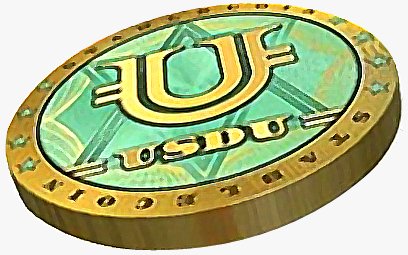Accredited InvestorsAltcoinAnatoli UnitskyAnti-Money Laundering (AML) In CryptoAPIArbitrageArtCoin TokenArticle DirectoryASICAuction Terminology GlossaryBasics of Stock Market InvestingBear MarketBest Crypto Payment Provider In the WorldBitcoinBlockchainBlockchain ConfirmationBlockchain Consensus MechanismBlockchain ForkBlockchain GlossaryBored Ape Yacht ClubBuild a Business That OutperformsBull MarketBuying SkyWay SharesByzantine Fault Tolerance (BFT) ExplainedCasascius CoinCentral Bank Digital Currency (CBDC)Centralized Crypto ExchangeCoinCoinsetCold WalletCollateralCommodity Futures Trading Commission (CFTC)Cross-Chain TechnologyCRUCrypto ExchangeCrypto GlossaryCrypto JokesCrypto Terms to KnowCrypto TickerCryptocurrencyCryptographyCryptojackingCryptounit BlockchainCryptounit GlossaryCryptounit ProgramdApp (Decentralized Application)Dead CoinDecentralized Exchange (DEX)Decentralized Finance (DeFi)Difference Between Bitcoin and EthereumDifferent Ways of Investing MoneyDigital CurrencyDistributed LedgerDo Your Own Research (DYOR)Dollar Cost Averaging (DCA)Dow Jones Industrial Average (DJIA)EncryptionERC-20ERC-721EthereumEvoScentFear Of Missing Out (FOMO)Fear, Uncertainty and Doubt (FUD)Fiat MoneyFNT Fintech CompanyGenesis BlockGlobal Unit PayGlossary of Banking TermsGlossary of Business TermsGlossary of Financial TermsHalvingHODLHot WalletHow Do I Start InvestingHow Rich is Satoshi Nakamoto?How to Create a BlockchainHow to Find Private InvestorsHow to Get Into FintechHow to Program Smart ContractsI Am Thrilled to Be a Part of This Global ProjectInitial Coin Offering (ICO)Initial Public Offering (IPO)Initial Token Offering (ITO)Innovation Basalt TechnologyInnovative Transportation TechnologiesInternational Bank Account Number (IBAN)Investing in Gold Mining StocksInvesting in Gold MiningJagerJoy of Missing Out (JOMO)Know Your Customer (KYC)LedgerLiquidity in CryptocurrencyMaker and Taker Fees in Crypto TradingMarket Capitalization (Market Cap)Meme CoinMetal Credit CardMetaMaskMillenials Now Have Access to Generational WealthMy Best Investment EverNew Digital EvolutionNFT GlossaryOff-Chain TransactionsOn-Chain TransactionsOpen Edition NFTPeer-to-Peer (P2P)Personal Loan GlossaryProbably the Best STO on the MarketProof of Stake (PoS)Real Estate Glossary of TermsReal Estate Investing GlossaryRebase TokenSecurities and Exchange Commission (SEC)Security Token ExchangesSecurity Token Offering (STO)Soulbound Decentralized Identities for Security TokensSoulbound ID Launch by Stobox Proves a SuccessSoulbound TokensStoboxStock Market GlossaryTestimonialsTether Platform and Token (USDT)UnitEx ExchangeUnitsky String TechnologiesUNTBUSDUValidatorWe Started Investing When We Were 25What are Blue Chip NFT?What are Blue Chip Stocks?What are Crypto Assets?What are Crypto Smart Contracts?What are CryptoPunks NFT?What are Digital Assets?What are Digital Collectibles?What are Gas Fees?What are Gas Wars?What are Hashmasks?What are Non Fungible Tokens?What are Non-Sufficient Funds (NSF)?What are Soulbound Tokens (SBT)?What are Stablecoins in Crypto?What are Transactions Per Second (TPS)?What are Utility NFTs?What are Utility Tokens?What Does Burning Crypto Mean?What Does Diamond Hands Mean?What Does Paper Hands Mean?What Does To The Moon Mean?What Does WAGMI Mean?What Happened to Satoshi Nakamoto?What is a 51% Attack?What is a Baby Boomer?What is a Backlink?What is a Banner?What is a Barcode?What is a Bid-Ask Spread in Crypto?What is a Block in Blockchain?What is a Block Reward?What is a Blockchain Address?What is a Blockchain Node?What is a Blockchain Oracle?What is a Blog?What is a Bond?What is a Bot?What is a Broker?What is a Business Accelerator?What is a Cash Cow?What is a Commercial Bank?What is a Commodity?What is a Con?What is a Credit?What is a Credit Limit?What is a Credit Rating?What is a Crypto Airdrop?What is a Crypto Bridge?What is a Crypto Scam?What is a Crypto Token?What is a Crypto Wallet?What is a Crypto Whale?What is a Crypto Winter?What is a Cryptocurrency Public Ledger?What is a Cryptocurrency Roadmap?What is a DAO?What is a Dark Pool?What is a Day Trader?What is a Dead Cat Bounce?What is a Default?What is a Derivative?What is a Digital Credit Card?What is a Fiscal Quarter?What is a Fungible Token?What is a Governance Token?What is a Grace Period?What is a Hard Fork?What is a Hot Wallet?What is a Hybrid Blockchain?What is a Hybrid PoW/PoS?What is a Joint Account?What is a Market Cap?What is a Merkle Tree in Blockchain?What is a Mining Farm?What is a Nonce? What is a PFP NFT?What is a POS System?What is a Prepaid Card?What is a Private Blockchain?What is a Private Key?What is a Public Blockchain?What is a Public Key?What is a Reserve Currency?What is a Ring Signature?What is a Routing Number?What is a Rug Pull in Crypto?What is a Safe Deposit Box?What is a Satoshi?What is a Security Token?What is a Seed Phrase?What is a Shitcoin?What is a Sidechain?What is a Soft Fork?What is a Spot Market?What is a State Bank?What is a SWIFT Code?What is a Tax Identification Number (TIN)?What is a Time Deposit?What is a Transaction Account?What is a Variable Interest Rate?What is a Virtual Assistant (VA)?What is a Virtual Card?What is a Virtual Currency?What is a Visa Card?What is a Whitelist in Crypto?What is a Whitepaper?What is Accounts Payable (AP)?What is AMA in Crypto?What is Amortization?What is an Accrual?What is an ACH Transfer?What is an Actuary?What is an Addendum?What is an Algorithm?What is an Angel Investor?What is an Annuity?What is an Asset?What is an ATM?What is an Atomic Swap?What is an Audit?What is an Avatar?What is an EIN?What is an Embargo?What is an Entrepreneur?What is an IDO (Initial Dex Offering)?What is an Interest Rate?What is an Internet cookie?What is an Investment Bank?What is an NFT Drop?What is an NFT Floor Price?What is an Ommer Block?What is an Orphan Block?What is an Outstanding Check?What is an Overdraft?What is Artificial Intelligence (AI)?What is B2B (Business-to-Business)?What is B2G (Business-to-Government)?What is Bartering?What is Bitcoin Dominance?What is Bitcoin Pizza Day?What is Blockchain Immutability?What is Blockchain Used For?What is BRICS?What is Business-to-Consumer (B2C)?What is C2C (Customer to Customer)?What is Capitalism?What is Catfishing?What is CFD Trading?What is Check Kiting?What is Cloud Mining?What is Communism?What is Content Marketing?What is Decentralization in Blockchain?What is DeFi in Crypto?What is Delisting?What is Depreciation?What is Digital Marketing?What is Diversification?What is Double Spending?What is Dumb Money?What is Dumping?What is Earnings Per Share (EPS)?What is Economics?What is Email Marketing?What is Equity?What is Etherscan?What is Fintech?What is Foreign currency?What is Forex?What is Fundamental Analysis (FA)?What is GameFi?What is Generative Art NFT?What is Gwei?What is Hard Currency?What is Hash Rate?What is Hashing in Blockchain?What is Inflation?What is Initial Game Offering (IGO)?What is Interest?What is Interest Income?What is Mainnet?What is Mastercard?What is Metaverse in Crypto?What is Mining in Cryptocurrency?What is Minting NFT?What is Mobile Banking?What is Money Laundering?What is NFT Alpha?What is NFT Metadata?What is NFT Rarity?What is NGMI Meaning?What is Nominal Interest Rate?What is Online Banking?What is Open-End Credit?What is OpenSea NFT Marketplace?What is Personal Identification Number (PIN)?What is Play-to-Earn?What is Polygon?What is Proof of Authority (PoA)?What is Proof of Work (PoW)?What is Public Key Cryptography?What is Pump and Dump?What is Quantum Computing?What is Refinancing?What is Retail Banking?What is Ripple?What is Sharding?What is Slippage in Crypto?What is Smart Money?What is Solvency?What is Soulbound ID?What is SSL?What is Staking in Cryptocurrency?What is Technical Analysis (TA)?What is Testnet?What is the Ask Price?What is the Better Business Bureau (BBB)?What is the Bid Price?What is the Dark Web?What is the InterPlanetary File System (IPFS)?What is the Gold Standard?What is the Lightning Network?What is the Prime Rate?What is the Sandbox?What is the Secondary Market?What is the World Bank?What is Tier 1 Capital?What is Tokenomics?What is TRC-20?What is Universal Banking?What is Unspent Transaction Output (UTXO)?What is Usury?What is Volatility in Crypto?What is Wash Trading?What is Web3?What is Whisper?What is XRP?What is Zero-Knowledge Proof (ZKP)?Who is Beeple?Who is Satoshi Nakamoto?Who is Vitalik Buterin?Why Tokenization is a Safe HavenWhy You Should Try Your Hand at Trading
Rebase Token
- Home
- Crypto Glossary
- Rebase Token
If you're into cryptocurrency, you might have observed that the value of many digital assets can fluctuate greatly, making it tough to use them as a form of exchange or store of value. Rebase Tokens, commonly known as Elastic Tokens, aim to provide a solution to this challenge.

Now, we will delve into the concept of Rebase Tokens, understand how they work, and evaluate if they might be a suitable investment opportunity for you.
What is a Rebase Token?
In the world of cryptocurrencies, a rebase token is a type of token that has its supply adjusted dynamically according to a set rule or formula. The purpose of this is to maintain a stable price, in contrast to other cryptocurrencies that have a fixed supply and can experience price swings based on market demand.
A rebase token uses a price-sensitive algorithm to determine its supply, which can change on a regular basis. This means that if the price of the token goes up, its supply will decrease, and if the price goes down, the supply will increase. This helps to mitigate the effects of price volatility, creating a stable asset that can be used as a store of value or a medium of exchange.
One of the most well-known rebase tokens is Ampleforth (AMPL), which uses an elastic supply mechanism to maintain a stable price. The algorithm behind Ampleforth adjusts the token supply based on its price relative to a target price, and it does this in a transparent and predictable manner.
Another popular rebase token is Curve (CRV), which is an Ethereum token that powers Curve.fi, a decentralized exchange and automated market maker protocol that provides liquidity for stablecoins. Curve operates on a rebasing mechanism that adjusts its token supply to maintain liquidity and keep the price of the token within a specific range.
Rebase tokens are seen as an innovative way to address the problems associated with traditional cryptocurrencies, such as price volatility and low adoption. By offering a stable asset that is less subject to price swings, rebase tokens have the potential to become a more widely used form of currency and a more accessible entry point for new users.
How do Rebase Tokens Work?
Rebase tokens are powered by smart contracts, which are self-executing pieces of code that trigger specific actions when certain conditions are met. In the case of rebase tokens, the smart contracts enable the automatic adjustment of the token's supply.
The formula for adjusting the supply is pre-determined and may vary, but it generally depends on the target price of the token and its current market price. If the market price is below the target price, the token supply will be increased to bring the price back up, and vice versa.
However, not all rebase tokens work in this manner. Recently, DeFi developers have embraced rebase token protocols to distribute rewards.
Benefits of Rebase Tokens
Rebase tokens offer several advantages, including price stability, growth potential, and decentralization.
Price stability is the most apparent benefit of rebase tokens. Unlike other cryptocurrencies, rebase tokens have the ability to maintain a relatively stable price, even in a volatile market. This can attract more investors who are looking to minimize the risks associated with traditional cryptocurrencies.
In addition to price stability, rebase tokens also have growth potential. As a relatively new technology, we are only just beginning to explore the capabilities of rebase tokens, and there is a lot of room for growth.
Finally, like most cryptocurrencies, rebase tokens are decentralized, making them less susceptible to market manipulation. This decentralization adds an extra layer of security and stability to the tokens.
Risks of Rebase Tokens
Rebase tokens, like all cryptocurrencies, come with certain risks. These include the risk of failure, volatility, and inaccessibility.
The risk of failure is a common concern for all cryptocurrencies, including rebase tokens. This risk can arise from security vulnerabilities in the code, technical problems, or a lack of adoption.
Volatility is another risk, although many rebase tokens are designed to maintain stable prices. However, in extreme market conditions, this may not always be the case. For example, in 2022, OlympusDAO experienced significant volatility due to unprecedented sell pressure and had to reduce reward rates to maintain stability.
Some rebase token protocols can be complex, which may discourage some investors who do not understand the underlying technology. This inaccessibility may limit the adoption of rebase tokens.
Investing in rebase tokens can be challenging to understand, and as a result, many traders may end up losing money. It is recommended to only invest in rebase tokens if you have a comprehensive understanding of the mechanisms involved. This will give you greater control over your investment and enable you to make informed decisions. Investing without proper understanding could result in a loss of your investment.
Is It Time to Consider Rebase Tokens in Your Cryptocurrency Portfolio?
Although rebase tokens possess unique features that could make them an attractive investment for some, it's also essential to acknowledge the associated risks.
Being a relatively new and untested concept in the crypto world, there's a higher degree of uncertainty about rebase tokens' long-term prospects and the possibility of them not living up to expectations or even failing.
On the other hand, rebase tokens could provide an advantage to traders and investors seeking to mitigate the volatility of traditional cryptocurrencies.
Ultimately, the decision to include rebase tokens in your portfolio will depend on your investment objectives, risk tolerance, and investment strategy. As with any investment, it's crucial to conduct thorough research and thoroughly evaluate the potential risks and benefits before making a decision.
Related Articles

Cryptocurrency
Cryptocurrency, abbreviated as crypto, refers to any digital form of money that employs cryptography to safeguard transactions such as buying, selling, transferring, and staking.

Decentralized Exchange (DEX)
A decentralized exchange is a digital currency exchange that allows users to acquire cryptocurrencies directly without the involvement of banks, government agencies or other intermediaries.

What are Stablecoins in Crypto?
When it comes to cryptocurrencies, one cannot overlook their volatility. However, there is one type of cryptocurrency that is particularly designed to provide a stable price: stablecoins.

What are Crypto Smart Contracts?
Smart contracts are programs that run when specific conditions are met and are stored on a blockchain. They are used to automate the execution of a contract so that all players can be certain of...

Decentralized Finance (DeFi)
Decentralized Finance, DeFi for short, is a new means of providing financial services to the public, generally without the need of a middleman.
- Home
- Crypto Glossary
- Rebase Token